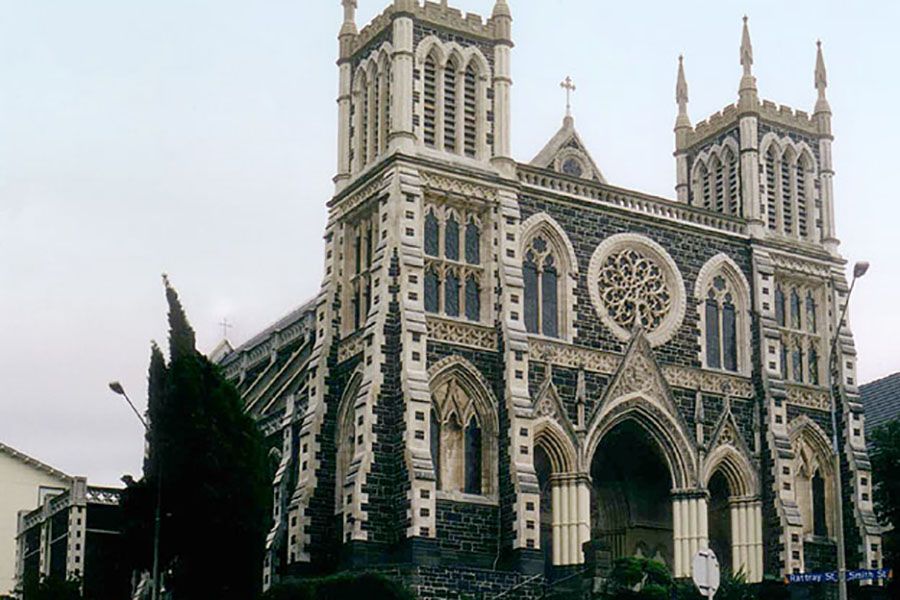

Kate Quiñones
CNA Staff, July 24, 2024 / 16:32 p.m.
As part of a six-year investigation into decades of abuse and neglect in the country, New Zealand has pointed the finger at the Catholic Church and other institutions for the role they played in perpetuating the abuse.
New Zealand’s Institutional Abuse Royal Commission of Inquiry released its final report on Wednesday, focusing on abuse and neglect in state and faith-run care homes between 1950 and 1999.
The report found that 200,000 victims had been abused or neglected in New Zealand’s public and religious institutions, and said the Catholic Church and Catholic institutions in particular had enabled abusers.
“If this injustice is not addressed, it will forever remain a stain on our national character,” Arun Soma, the commission’s principal adviser, said in a video statement.
The New Zealand commission said the Catholic Church and Catholic institutions had responded inadequately to complaints of abuse and neglect, placed abusers in schools and prioritised forgiveness over protection and accountability.
The report found that up to 42% of people receiving faith-based care run by any denomination in New Zealand had been abused during the period. A 2020 report by the Catholic Church previously noted that 14% of New Zealand clergy had faced accusations of abuse in recent decades.
The report details many forms of abuse against New Zealand’s indigenous Maori people across a range of institutions, including physical, emotional, mental, sexual and cultural neglect and racism.
The commission found that the Catholic Church “relied too heavily on the opinions of psychiatrists, transferring abusers to other branches of the clergy so they could reoffend.” Additionally, the commission found the church was responsible for prioritizing “reputation over safety” and creating a “power imbalance between clergy and parishioners.”
The commission said Catholic institutions “lack resources and investment in those who care for children and vulnerable people”.
“Religious institutions have several unique factors that lead to abuse and neglect within their institutions,” Somma said. “The moral authority and credibility of clergy and religious leaders allows abusers in religious institutions to commit abuse and neglect with impunity.”
“Religious beliefs were often used to justify abuse and neglect and silence victims,” he continued. “Hierarchical and opaque decision-making processes discouraged scrutiny and complaints.”
Of the more than 2,300 survivors who spoke with researchers, they found that “a higher percentage of survivors were in religious institutions than those in state care.” [who] “They were sexually abused,” the report said. Investigators found that the “highest rates of reported sexual abuse” were from the Anglican Dilworth School in Auckland’s Tamaki Makaurau and the Catholic Maryland School in Christchurch Ōtautahi, as well as “Catholic institutions generally”.
“In faith-based care settings, abuse is treated as a religious transgression and victims are expected to forgive, let go of anger and blame, and instead embrace those who have sinned against them, while abusers simply have to repent,” Soma noted. “Many of the abusers were moved to other facilities and continued to abuse those in their care.”
The New Zealand Catholic Bishops’ Conference expressed its appreciation for the commission’s report in a statement on July 24 and promised to take action after reviewing its findings.
“We hope that this report and the work that has resulted from it will result in a better society and a safer environment for all people,” Bishop Steve Rowe, head of the bishops’ conference, said in a statement. “Abuse is not just a historical event, nor is it limited to one section of society. The investigative report, and the material we have heard from victims and survivors, make that very clear.”
“Over the past 30 years, the Catholic Church in New Zealand has made great strides in responding to and protecting against reports of abuse,” the bishops continued, “and we must continue to work to ensure that progress continues and that our church communities are places where people are safe.”
(Continued below)
Subscribe to our daily newsletter
The commission recommended New Zealand seek apologies from state and church leaders, including Pope Francis. The report also called for an investigation into Catholic priests who were transferred to Papua New Guinea over alleged abuse.
The New Zealand inquiry, described by its leaders as the most extensive study of child abuse and neglect conducted anywhere in the world, looked at abuse in faith-based care, state institutions, the foster care system, schools and health care settings, and interviewed about 2,500 victims.
“Sending gratitude and aloha [love] To all survivors, your families [extended family] “We thank the women and communities who came forward,” said the report’s commissioner, Andrew Elueti. “Thanks to you, the horrific scale, nature and impact of abuse and neglect in this country has been revealed. You have spoken out about your darkest days, years and now decades. Your so-called protectors have become perpetrators. We want you to know that we have heard you and we believe you.”
Kate Quiñones is a staff writer for Catholic News Agency and a fellow at The College Fix. She has written for The Wall Street Journal, the Denver Catholic Register and The Catholic Boat and is a graduate of Hillsdale College. She lives in Colorado with her husband.
Tara Thomas Agency stands at the forefront of the entertainment industry, with years of experience dedicated to nurturing the most exceptional talents and successful acts.